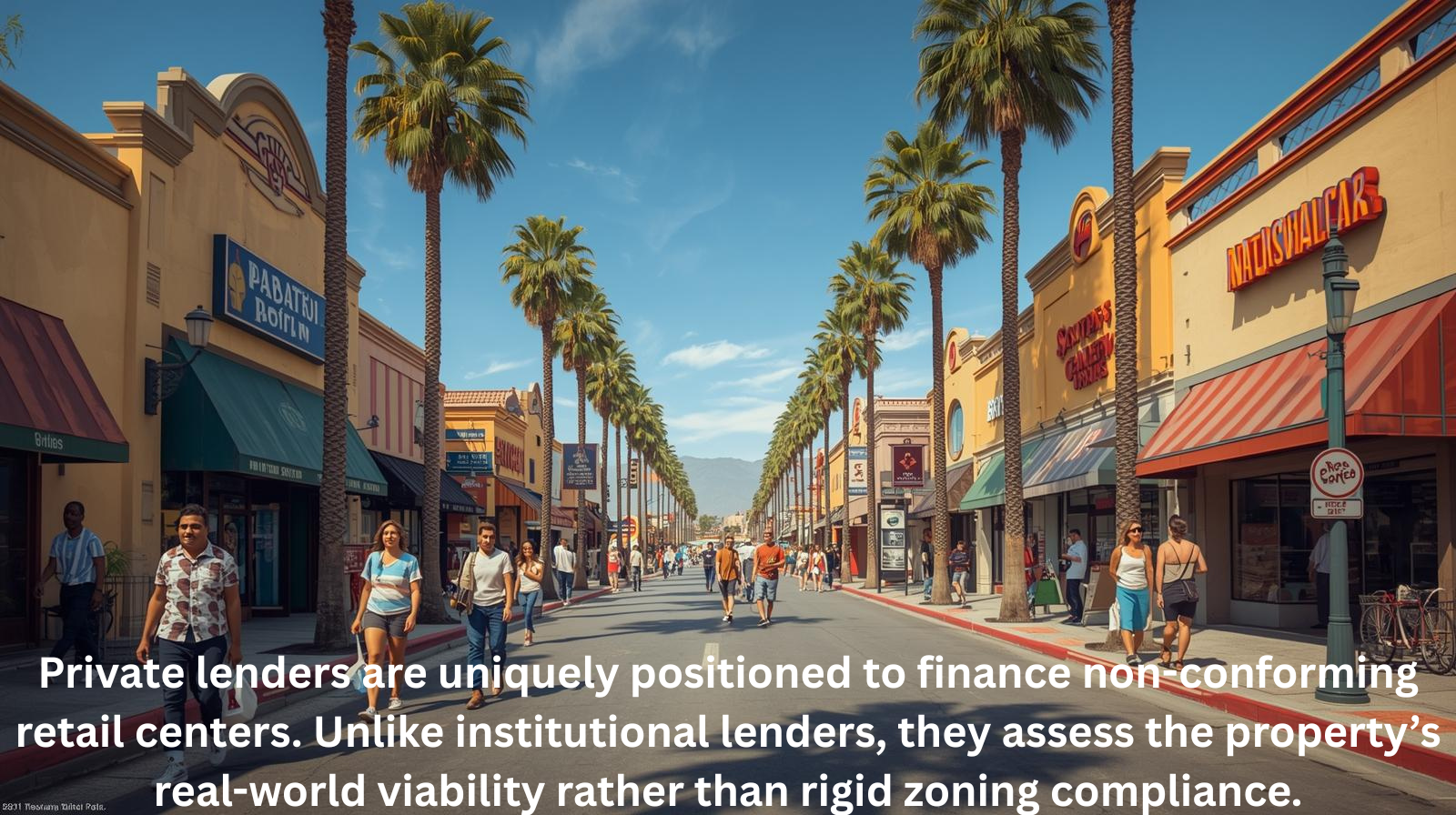Introduction
Neighborhood strip retail centers—often home to small, locally owned businesses—may be overlooked by institutional lenders due to zoning non-conformities. However, with proper management and financing, these properties not only offer strong cash flow but also present promising long-term investment potential.
Understanding Non-Conforming Properties
Non-conforming properties are those that do not comply with current zoning regulations, typically due to changes in local laws or the property’s legacy use. These properties may face challenges in securing traditional financing, particularly when features such as parking ratios or tenant types do not meet standard guidelines.
The Role of Private Money Lenders
Private lenders are uniquely positioned to finance non-conforming retail centers. Unlike institutional lenders, they assess the property’s real-world viability rather than rigid zoning compliance. Their flexibility not only allows borrowers to capitalize on opportunities that others might overlook but also ensures that funding is available where it’s needed most.
Loan Process & Due Diligence
Financing typically begins with:
- Appraisal: Establishes market value.
- Phase I Environmental Assessment: Identifies potential contamination risks.
If Phase I results are inconclusive, a Phase II assessment with soil testing may be required. Though upfront costs can be a concern, they are essential for informed decision-making.
Case Study: A 12-Unit Neighborhood Center Borrower sought financing for a retail center with mom-and-pop tenants, including a popular sports bar. The property was deemed non-conforming due to its limited parking and mixed-use zoning. Institutional lenders declined the loan, but a private mortgage broker, with their expertise in non-conforming properties and relationships with private lenders, recognized its potential and facilitated the financing process.
Key Underwriting Considerations
Lenders should evaluate:
- Occupancy & Cash Flow: Is rental income stable and consistent?
- Parking & Accessibility: Are on-site and off-site spaces adequate during peak hours?
- Market Stability: Is the location commercially viable with low tenant turnover risk?
- Repositioning Potential: Can the property be improved through basic upgrades?
Value-Add Opportunities
Simple enhancements can significantly boost appeal and performance:
- Resurfacing and striping the parking lot
- Repainting and signage upgrades
- Reconfiguring ingress/egress for better traffic flow
These improvements may be financed through the loan, with funds held by a licensed construction fund control agent. Disbursements are made upon inspection and lien release, ensuring accountability and quality.
Risk Mitigation & Guarantees
Lenders often require:
- Bank Statement Review: For both the ownership entity and the individual Borrower
- Personal Guarantee: If the property is held in an LLC or Corporation, the Borrower may be personally liable in case of default
This provides added security and reinforces the Borrower’s commitment to the project.
Conclusion
Non-conforming strip retail centers, when properly underwritten and managed, can be high-performing assets. Private lenders Play a critical role in unlocking value by offering flexible solutions when traditional financing falls short.
